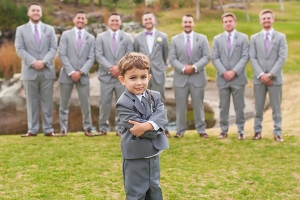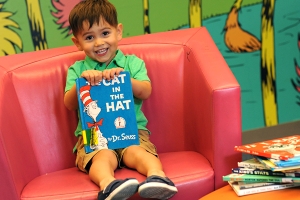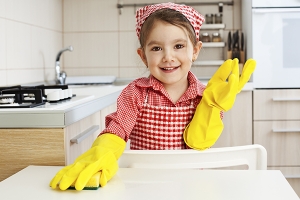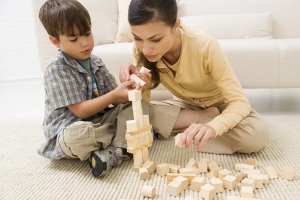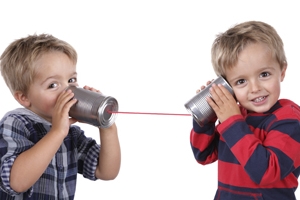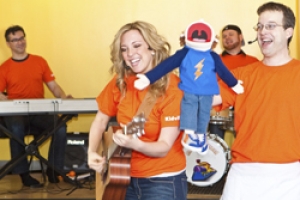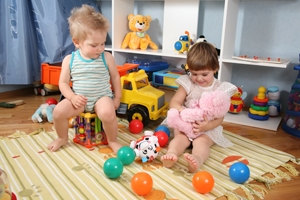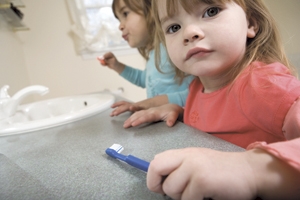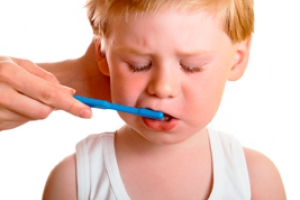
Each night at my house there’s a show after dinner. I call it dental drama. As I approach my son’s mouth with the toothbrush, he closes it tight. I ply him with sparkly, watermelon-flavored toothpaste. Still, he resists. I threaten. He negotiates. After several minutes, he lets me brush. As I do, he sucks off the toothpaste, bites the toothbrush and gags for effect. With antics like this, it’s no surprise the American Academy of Pediatric Dentists (AAPD) reports more than half of children have cavities by second grade. If you have season tickets to the dental drama, read on for expert, show-stopping advice.
At-Home Hygiene
Kids need to brush at least twice a day and floss between teeth, and parent involvement is critical. “Most kids aren’t able to brush by themselves until they can tie their own shoes and cut food with a knife and fork,” says Dr. Rhea Haugseth, a pediatric dentist in Marietta, Ga., and President of the AAPD. “Before that, their motor skills and coordination aren’t up to the task.” Parents should expect to brush kids’ teeth until age 7 or 8, and to floss them until age 9 or 10.
Some kids resist brushing because they want to retain control. Others may be intimidated by the process itself. Your child may fear you’ll be rough with the toothbrush, or that they’ll choke on toothpaste and saliva. Go easy on the toothpaste and break brushing into segments so your child has time to calm down (and spit) in between. The fast and furious approach may be over-stimulating.
It’s best to brush kids’ teeth right after dinner, says Haugseth. Doing so removes food particles several hours before bedtime and keeps dental drama from interfering with your wind-down routine. Sing a song or use a timer, so your child knows how long brushing will last. If you make it a silly song, you may just steal the show.
Pre-Visit Prep
“We encourage parents to bring their child in for an initial dental visit when their first few teeth erupt, usually between 6 and 12 months of age,” says Dr. Chad Denman, DDS. Early dental exams help establish good oral health habits and familiarity with the dentist. Infants usually sit in a parent’s lap during the exam.
Like adults, kids fear the unknown. Explain what to expect using non-threatening, age-appropriate language. Avoid words like “needle” or “drill.” Your child’s imagination may run wild. Describe procedures in fun, familiar terms. Taking x-rays is “taking pictures of your teeth,” polishing teeth is “tooth washing.” The suction tube is a tiny vacuum for spit. Calling it a “spit sucker” turns drama into comedy.
Knowledge is powerful. Read Berenstain Bears Visit the Dentist to teach kids the basics and Throw Your Tooth on the Roof to address loss of the primary teeth. Practice helps, too. Use a rotary toothbrush at home to familiarize your child with the sounds and sensations of dental equipment.
“The most important thing is to keep a positive attitude about the dentist,” says Dr. George Lynch, a pediatric dentist. Many moms and dads have unpleasant memories of their own childhood dental visits.
“I usually have to remind them that the world of dentistry has improved immensely,” says Lynch. Distasteful, chalky toothpaste and heavy-handed hygienists are things of the past. Let your child form opinions based on personal experience.
In the Office
Dental instruments and procedures can be frightening.
“Sometimes kids dislike the noise or vibration of the prophy—what we use to clean their teeth—or they fear the suction device,” says Dr. Neda Kalantar, a pediatric dentist. They may worry the instrument will hurt, or that their teeth or tongue will be sucked out.
Dentists and hygienists use the tell-show-do technique to ease kids’ fears, says Kalantar. They’re also incredibly patient. Expect the dentist to explain what she’ll do, show your child the instruments and materials she’ll use, and then—once your child knows what’s coming—gently do the work.
Procedures involving the drill are the most frightening, says Denman.
“The child has to breathe through his nose during the procedure, because of the water shooting out from the drill into the back of the throat. The tongue and cheek have to be held back by an assistant.”
The odor that develops when a tooth is cut can be unnerving, too. Enhance your child’s confidence by praising his brave, helpful behavior before and after treatment.
Consider your child’s dentist a health-care partner. To get the most out of your visit, come prepared with questions. If you have concerns about your child’s oral hygiene habits, thumb sucking or cavities, discuss them with the dentist in private.
-----------------
Heidi Smith Luedtke, Ph.D, is a personality psychologist and mom of two. She shares psychology lessons for life at heidiluedtke.com/blog.


